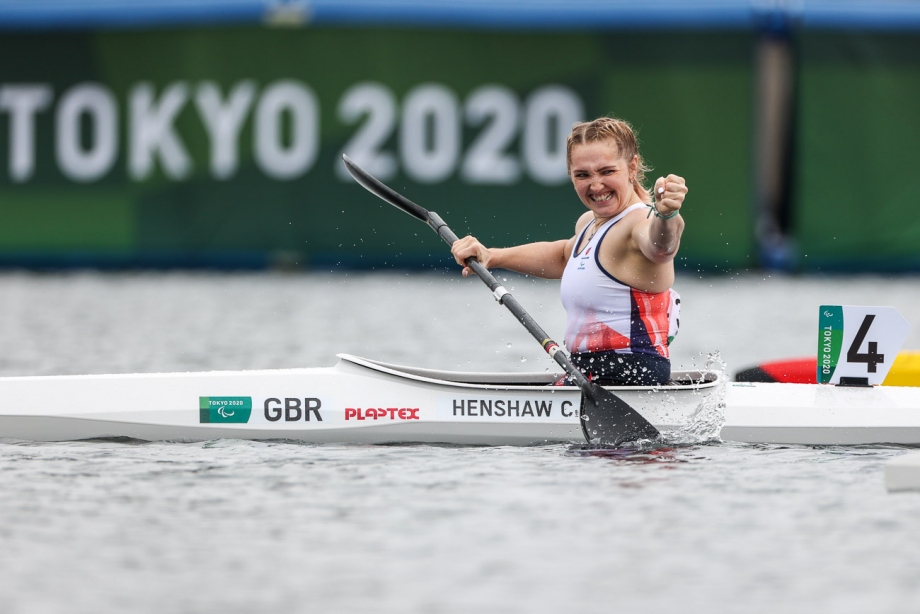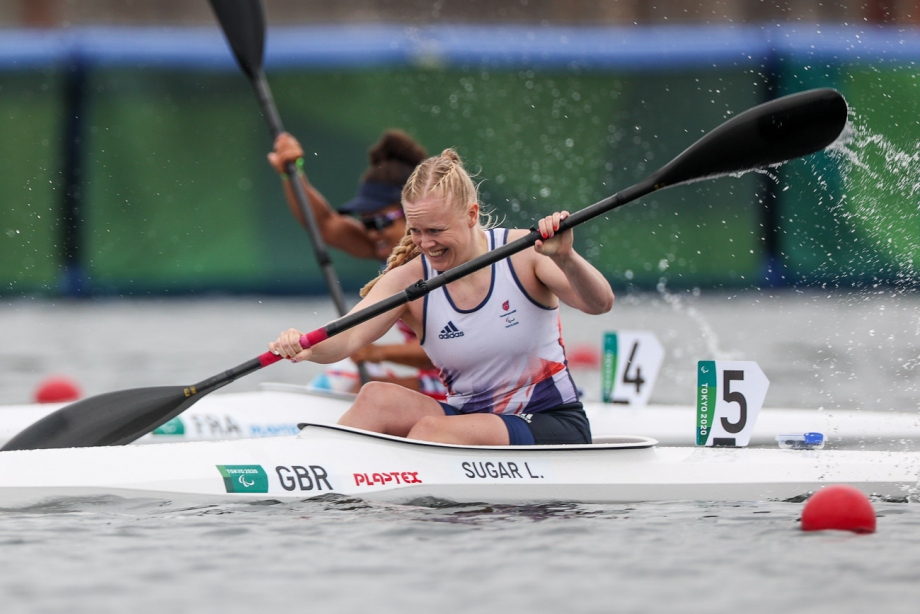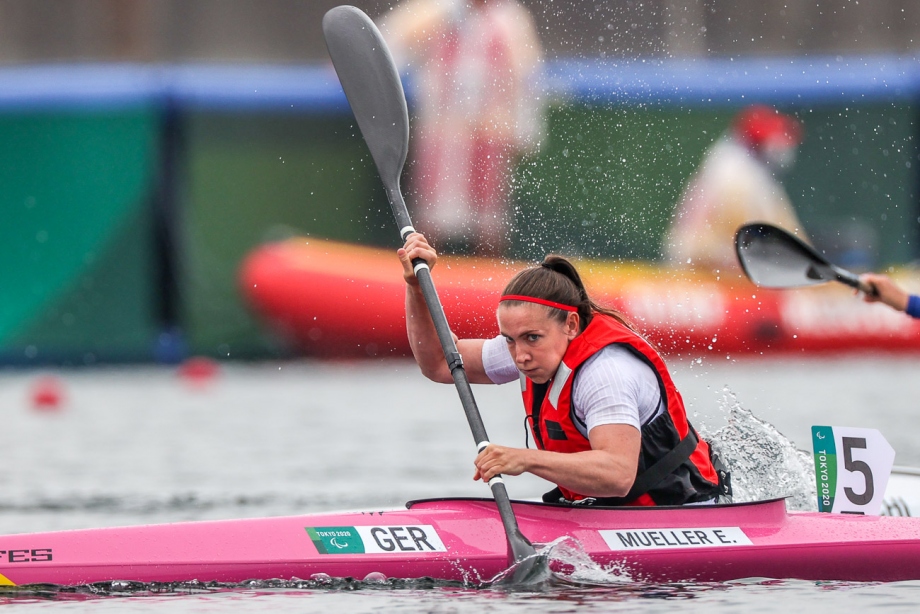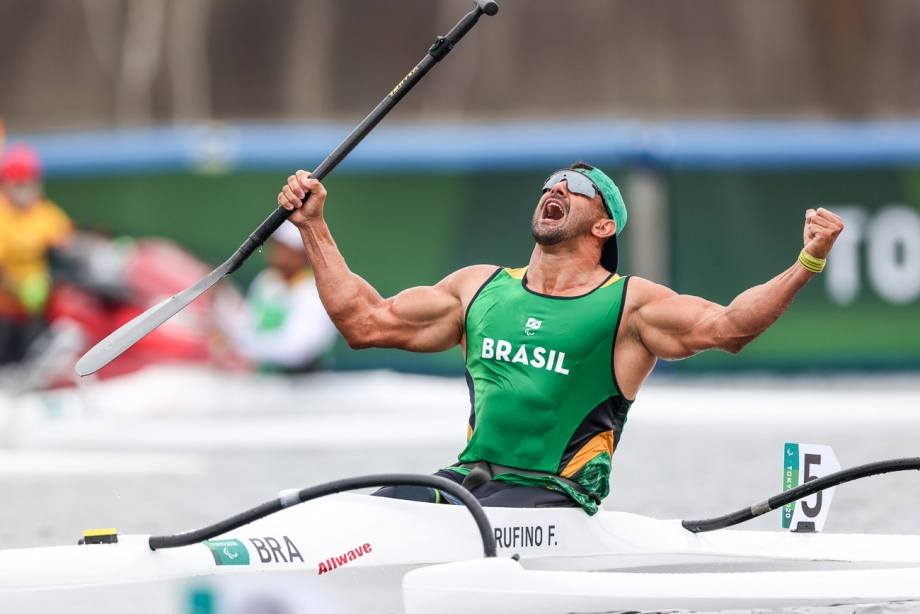Australia’s Curtis McGrath completed a golden double, Great Britain added another two gold medals, and Germany and Brazil both triumphed on the final day of paracanoe competition at the Tokyo Paralympic Games on Saturday.
Charlotte Henshaw in the women’s KL2 and Laura Sugar in the women’s KL3 took Great Britain’s gold medal tally in Tokyo to three, the same result the country achieved when paracanoe made its debut in Rio in 2016.
Germany’s Edina Mueller added the women’s KL1 gold medal to the gold she won in basketball at the 2012 London Paralympics, while the man they call “The Steel Cowboy”, Fernando Rufino de Paulo, won gold for Brazil in the men’s VL2.
33-year-old McGrath became the first paracanoe athlete to win two gold medals at a single Games, when he added the VL3 title to the KL2 gold he successfully defended 24 hours earlier.
But he said he never really thought about the prospect of creating history.
“Very happy to have this all done, it’s been a long road and everyone has worked really hard to get here,” McGrath said.
“It wasn’t something that I was aiming for, so I’m just thankful my race came together and I could push through for the gold.”
Brazil’s Giovane Vieira de Paula took the silver, while Stuart Wood continued Great Britain’s final-day medal frenzy with a bronze.

Charlotte Henshaw had never sat in a kayak until after the Rio Paralympics, but on Friday added her name to the UK paracanoe glory board with an emphatic win in the women’s KL2.
Henshaw switched to paracanoe after three Paralympics as a swimmer, where she won a silver and a bronze medal.
“I didn’t switch sports to win a gold medal, but I’d by lying if I said I didn’t want to complete the set,” Henshaw said.
“It looks lovely, the bronze and the silver, but it looks much better when there is one of each colour. I knew I wanted to try and do it, I mean I wouldn’t be involved in the Paralympic movement if I didn’t want to win a gold medal, but I didn’t ever assume it would be an easy road, and it hasn’t been at all.
“I just knew that I wanted a new challenge, and I just knew that there was an opportunity for me to learn something new. I had no idea if I’d be any good, so it was a real stab in the dark. I’m very fortunate to have found another sport that I love as much as I love swimming.”
British teammate and defending 2016 champion Emma Wiggs won the silver, and Katalin Varga won Hungary’s first ever women’s paracanoe Paralympic medal by finishing third.

Laura Sugar took up paracanoe even later, crossing from track and field in 2018. The 12-month delay to Tokyo gave her an extra year to learn the sport, and on Friday she won Great Britain’s second gold of the day and the third for the week by triumphing in the women’s KL3.
“It’s all a bit of a blur really,” Sugar said.
“I’d always just done kayaking recreationally, and always enjoyed it, but I always thought it was just for wheelchair athletes because that was all that I had seen. The minute I got in the boat I loved it.
“Obviously I was devastated when the Paralympics got delayed, but it gave me a chance to really hone in on that technique and to catch up. It put me in great stead to be faster here than I would have been last year.”
France’s Nelia Barbosa took the silver and Germany’s Felicia Laberer the bronze.

German teammate Edina Mueller expressed surprise when she beat reigning world champion Maryna Mazhula in the heats of the women’s KL1, but then repeated the performance on Friday to win her second Paralympic gold medal.
“My heat gave me so much confidence for the final,” Mueller said.
“There is not so much difference in feeling for the medals. There is a team behind me, I did not win this medal on my own. Yes I was alone on the 200 metres, but there is so much more to it.
“In the end what I do before the race, how I train, it’s my responsibility. I have to decide what’s good for me an what works, so of course it is a little different to win an individual medal.”
Ukraine’s Mazhula won the silver, and Katherinne Wollerman won Chile’s first paracanoe Paralympic medal by finishing third.
Five years ago Brazil’s Rufino de Paulo had to withdraw from his home Olympics because of a health scare, but on Friday he charged to his country’s first paracanoe Games gold medal in the men’s VL2.
The former rodeo bull rider, who claims to have had more than 80 accidents in his life, said he was determined to make up for lost time.
“This win represents all my work since I was a cowboy until now,” Rufino said.
“This represents every time I said no to parties, to keep my head focussed, and all those times I had to leave my family.”
Great Britain finished the paracanoe competition as the most successful nation, winning three gold, one silver and three bronze medals. Australia was second with two gold and one silver, and Brazil finished third with a gold and two silver.
There were 11 countries who won medals over the three days of competition.
Pics by Dezso Vekassy





